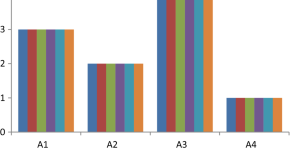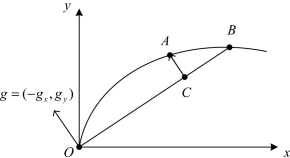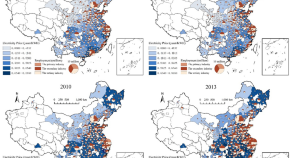
Collection
Progress in Green Economy and Sustainability
- Submission status
- Closed
Sustainable development consists of both natural environmental changes as well as changes caused by humans. Green growth, more energy efficiency, cleaner energy technologies and sustainable development are regularly considered as harmonizing goals by international policy makers. Public and private investment strength growth in employment in economic activities, infrastructure and assets that reduce pollution, augment energy and resource efficiency and bring biodiversity loss to an end. Economic activities and energy consumption and the associated issues like decoupling, energy consumption and security, trade and the environment, green industrialization and greening the workplace, digitalization and green communications, corporate social responsibility are among the issues to be explored.
The green economy concept with low carbon, resource efficient and socially inclusive, is an important term in international agendas. Together with the faced economic crisis, the current Covid-19 pandemic but also the climate crisis and the view that policies to attain sustainability cannot be put into operation efficiently, policy makers anticipate a solution from the greening of the economy. The functioning of green economy, sustainable consumption and production and resource efficiency for achieving sustainability with less natural resources utilization, waste generation and pollution and more green investments and employment.
The aim of this special issue is to address the achievement of sustainable development by addressing the status and progress of current issues of concern. Specifically, the call focuses on Green economic and energy management and sustainability of economic processes and systems, including methods, practices, tools, applications, and experiences dedicated to these issues of sustainability. Theoretical and empirical findings of the international experience will provide the framework to answer questions about the efficient integration of green economy policies with both national economic as well as social priorities and aims that a greener and more inclusive economy may offer and facilitate a sustainable development and the fulfilment of Task 8 and the other associated SDGs. The topical collection will be of immense value to policymakers, researchers, and planners with an interest in maintaining and improving their community’s energy system, both securely and sustainably. The applied theoretical and analytical contributions are expected to provide guidance to policy-makers and government officials in designing new policy scenarios for the investigation of green economy and sustainability. The empirical contributions should provide evidence to support and inform current policy debates.
Toward those goals, we seek studies that address research questions including, but not limited to:
Design and implementation of national green economy strategies by developed and developing countries or regions
Modeling economic growth, efficient energy use and sustainability
Exploring the direct or indirect connection between market structure and sustainability
Macro-economic methods to sustainable growth with attention on access to green finance, technology and investments and support to a Green Economy transition
Economic aspects of adaptation and mitigation to climate change Sustainable consumption and production
Regulatory framework and institutional setup towards Green Economy
Society awareness and willingnes to pay for higher environmental quality
Policy implications of improved firm’s profitability and efficiency from an economic and societal point of view
Innovation characteristics of firms in their efforts to achieve sustainability goals
Empirical methods and instruments in determining and discussing economic and energy performances
Attention in the measurement of industrial performance in achieving sustainability
Modelling energy efficiency improvement in manufacturing
Energy management systems (e.g., ISO 50001) and their contribution to sustainable development
Poverty alleviation
Circular economy
Stochastic frontier approach and data envelopment analysis applications
Editors
-
George Halkos
Prof. Dr George Halkos, Professor in Economics of Natural Resources, School of Humanities, University of Thessaly, Greece Email: halkos@econ.uth.gr
-
Malin Song
Prof. Dr Malin Song, Full Professor and Director of the Collaborative Innovation Center for Ecological Economics and Management, Anhui University of Finance and Economics, China Email: songmartin@163.com
-
Clevo Wilson
Prof. Dr Clevo Wilson, School of Economics and Finance, Queensland University of Technology, Australia E-mail: clevo.wilson@qut.edu.au
-
Trung Thanh Nguyen
Dr. Trung Thanh Nguyen, Research Director, Institute for Environmental Economics and World Trade, School of Economics and Management, Leibniz University Hannover, Germany Email: thanh.nguyen@iuw.uni-hannover.de
Articles (9 in this collection)
-

-
Green supplier’s selection using economic and environmental criteria in medical industry
Authors (first, second and last of 4)
- Adis Puška
- Admir Beganović
- Sašo Murtič
- Content type: OriginalPaper
- Published: 14 July 2022

-
Effects of energy and economic growth on CO2 emissions: what does globalization matter?
Authors
- Yi-Bin Chiu
- Wenwen Zhang
- Content type: OriginalPaper
- Published: 04 July 2022

-
The effects of environmental information provision on plastic bag use and marine environment status in the context of the environmental levy in Greece
Authors (first, second and last of 4)
- Charalampos Mentis
- George Maroulis
- Kostas Bithas
- Content type: OriginalPaper
- Published: 13 June 2022

-
Could Chinese enterprises real benefit from embedding in global value chains?
Authors
- Shuhong Wang
- Hanxue Chen
- Content type: OriginalPaper
- Published: 19 April 2022

-
Spatial assessment of China’s green governance efficiency in the period of high-quality development
Authors (first, second and last of 4)
- Hongda Liu
- Shaodong Zhao
- Jialiang Huang
- Content type: OriginalPaper
- Published: 26 March 2022

-
Analysis of China’s regional energy efficiency based on DEA considering integer constraint
Authors
- Xiaohong Liu
- Jiasen Sun
- Content type: OriginalPaper
- Published: 22 March 2022

-
Does the local electricity price affect labor demand? Evidence from China’s industrial enterprises
Authors (first, second and last of 4)
- Jiaman Li
- Qinzhe Jiang
- Xiucheng Dong
- Content type: OriginalPaper
- Published: 22 March 2022

-
Farm-level autonomous adaptation to climate change and its impact on crop productivity: evidence from Pakistan
Authors (first, second and last of 5)
- Nasir Abbas Khan
- Zaiwu Gong
- Uttam Khanal
- Content type: OriginalPaper
- Published: 26 November 2021



